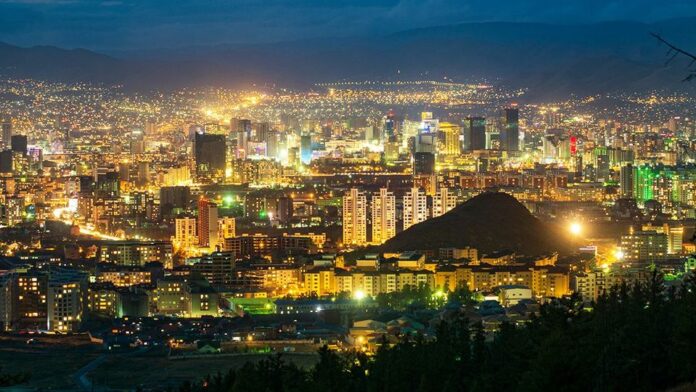How can a country heavily reliant on coal for its energy needs develop a more sustainable energy mix based on reliable, renewable power? One of the big challenges in fighting climate change is how countries can transition to more sustainable economies. Mongolia provides a compelling example of how increasing the use of sustainable power coupled with reliable energy storage technology can help. The challenge of reliable energy Mongolia uses coal-fired power for the vast majority of its energy supply. In 2019, coal accounted for 5884 GWh, compared to 476 GWh from wind, 374 GWh from oil, 85 GWh from hydro and 81 GWh from solar, according to the International Energy Agency. This has contributed toward severe air pollution in cities such as Ulaanbaatar. Before the growth of modern cities, Mongolia was traditionally known as ‘the land of the eternal blue sky’ as it typically enjoys 220-260 days of sunshine annually. Making greater use of this natural resource can help reduce greenhouse gas emissions as well as dangerous air pollution. Since the sun doesn’t always shine and the wind doesn’t always blow, renewable energy generation can be unpredictable. One way to solve this issue is to capture the energy when it’s available and store it in batteries. For example, NAS* batteries can store megawatt-level amounts of renewable energy produced from wind and solar for use when those sources are not available. During power outages or load-balancing operations, the electricity in these NAS batteries can power thousands of homes and businesses. These batteries consist of sodium and sulphur electrodes separated by a ceramic electrolyte, and they can deliver energy over six hours or more of high-power output. In one installation in Japan, 252 NAS battery containers provide 50 megawatts of output and 300 megawatt-hours of storage capacity. That’s enough to power about 30,000 households for a day. ‘NAS batteries are very well suited for applications such as shifting large amounts of surplus electricity generated by solar power during the daytime to nighttime, and the number of such applications is expected to increase in the future,’ an NGK Insulators spokesperson said. Clean energy for rural Mongolia The Mongolian government is adopting this approach to harness more solar power. The Mongolian Ministry of Energy is promoting the Upscaling Renewable Energy Sector Project, which aims to expand renewable energy with the nation’s first solar power generation facility with a battery storage system. ‘In this project, renewable energy, which is affected by weather conditions, is supplied as stable power through the NAS batteries,’ says the NGK spokesperson. ‘A solar power generation facility equipped with an advanced energy storage system and an Energy Management System (EMS) will make it possible to use solar power-derived electricity day and night, contributing to improved energy security and reduced CO2 emissions in the country.’ The new solar plant is outside the city of Uliastai, Zavkhan Province, in western Mongolia and, once operational, will have a capacity of 5 MW, complemented by a NAS storage battery with a storage capacity of 3.6 MWh. Upon completion, the plant is projected to save an estimated 6,423 tons of CO2-equivalent emissions per year. With funding from the Asian Development Bank and Japan’s Ministry of the Environment through its Joint Crediting Mechanism, the plant is being built by Japanese engineering firm JGC Holdings and MCS International (Mongolia), with NGK Insulators installing the NAS battery system. The installation of most of the equipment is complete and the facility is scheduled to begin operations soon. The Upscaling Renewable Energy Sector Project is a larger scheme with big ambitions. It aims to build distributed renewable energy systems in less developed regions while enhancing the ability of public utilities to invest in and manage grids for clean power. Overall, upon successful completion it seeks to install a total of 41 MW of renewable energy capacity, which is enough to provide clean energy to 70,000 households while cutting 82,789 tons of CO2 emissions annually. NAS batteries can store renewable energy and supply it when needed. ‘In Mongolia, which relies heavily on coal-fired power generation, the spread of renewable energy is expected to accelerate the shift to clean power,’ the NGK Insulators spokesperson said. ‘We will continue to promote the expansion of orders for renewable energy co-located storage battery projects, and contribute to the realisation of a stable supply of renewable energy, climate change measures and decarbonisation.’ *NAS and NAS logo are trademarks of NGK Insulators, Ltd., registered in the United States and other countries.


